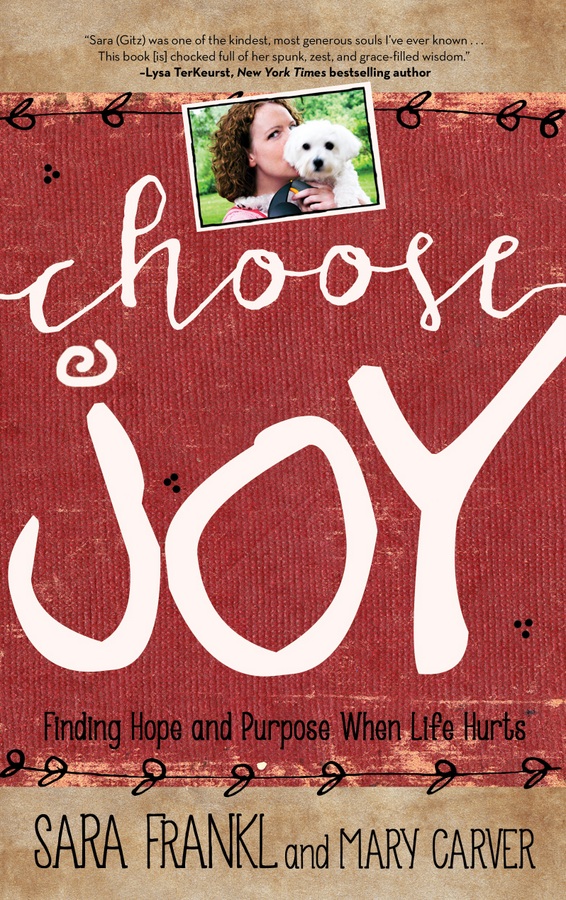When Mark’s mom died in a car accident, we were living in my college town about three hours away.
After we got off the phone with his dad, I called my parents. She’d already talked to my father-in-law, so she knew what was going on. I don’t remember what she said, but I remember asking, “Do we need to bring funeral clothes? Are you sure?”
I just couldn’t believe it.
It’s weird, the things Mark and I remember from the days that followed. One of my most distinct memories is how nobody thought to remove the sheet from the living room couch. Mark’s mom covered the couch with a white sheet during the day – when nobody was there – to protect it from the direct sunlight it got from the windows.
When we arrived at his parents’ house and I saw family and friends crowded into the living room, sitting on the sheet-draped couch, I inappropriately thought, “Oh, Marilyn would just die if she saw that!”
I don’t know what’s wrong with me.
Another thing I remember so clearly is how I felt when our friends from college showed up at the visitation and the funeral.
One couple drove down with their young son and stood in line for hours to see us. (If I remember correctly – and strangely enough, this is where my memory is a little fuzzy – 700 people came to the visitation. It was a Long. Line.) They literally hugged us and got back in their car to drive home.
They spent nearly six hours in the car – with a toddler – to be with us. To show us how much they cared.
The next day, at the funeral, I was surprised to see four other friends from college. They even came back to Mark’s parents’ house after the funeral to talk for a while.
There was just something so special, so meaningful about them being there with us. I’ll never forget that.
When I asked you last week how you comfort friends who are grieving, several of you mentioned just being there.
It’s so true. It doesn’t matter what you say. You might not have to say anything at all. But being there makes all the difference in the world.
A few years ago, a good friend of mine had a miscarriage. I’d never been pregnant at that point. I had no idea how she felt. But I chose to be there. Another friend and I went over to her house and we watched Ella Enchanted. That is not great cinema, let me tell you, but it didn’t matter. We were just there. And I think that helped.
You all had some other great advice, and I wanted to make sure everyone got a chance to read it. If you have some tips or insight, please feel free to add to this list in the comments!
How to Help a Grieving Friend
- Weep with those who weep. Crying with friends and family who are grieving shows that you’re carrying the burden with them, and it can be a huge comfort to know that someone else feels that pain. (Janna)
- Acknowledge that this sucks. I think it should go without saying, but maybe not. In case you’re tempted to toss out clichés about everything happening for a reason, let me give you one piece of advice: Don’t. Don’t say that. Don’t try to lessen your friend’s pain by playing it down. Recognize that what he or she is going through is a rotten situation, and leave it at that. (LeighDBug1)
- Share a favorite memory of the person who died. When my Granny was in the hospital the last time (and we knew it would be the last time), we collected our favorite pictures and put together a scrapbook. It gave us something to do during those long hours in the hospital waiting room, and prompted hours of reminiscing and telling (and re-telling) the best Granny Stories. (LeighDBug1)
- Anticipate their needs. Bring a meal, clean their house. If you tell them to call you with whatever they need, chances are they won’t. So true. When my granddad was in the hospital the last time (yes, I’ve spent a lot of time in hospitals), my cousins took me to Oceans of Fun. I don’t know whose idea it was, but I am sure my mom appreciated that I was entertained and watched over while she was focusing on her dad. (LeighDBug1)
- Hug them and simply say, “I’m sorry for your loss.” I keep it simple because whether it was expected (long illness) or unexpected (happened quickly) I think they are probably in a semi-shocked state of being. Enough said. (Cindy in PA)
- Send a sympathy card and write something like, “I’m keeping you in my prayers. I pray that you feel God’s presence, love, strength, and comfort during your time of mourning.” Every time I go to buy a sympathy card, I curse the card industry. Why can’t anyone write a decent sympathy card? Why does every card have to use the word “sympathy”? I like this sentiment from Cindy in PA, and I think it would be perfect in a blank card.
- Don’t say “I know what you’re going through” or “I know how you’re feeling,” because no, you don’t. Even if you’ve lost a loved one under similar circumstances, you can’t know how someone else is feeling. My uncle died a few years after my mother-in-law did, and it was really tempting for Mark and me to tell my cousins that we know how they feel. Of course we didn’t – but when you want so badly to comfort someone, it’s hard not to grasp onto that phrase. Because, if I went through this and survived, you can, too. Right? That’s what we mean. But no matter the intention behind the words, I’m pretty sure it’s better to avoid the comparison of one grief to another. (Chrissy)
- Make a casserole. You know, we joke about funeral food and how cooking is a silly thing to do when someone dies. But really, who wants to cook in times of grief? Honestly, some people may not be able to eat at all. But the friends and family who come to visit or even stay with them? They will probably get hungry. (This tip’s from me.)
- Pray. Several people left comments saying that they were praying for my cousin, my friend and me. Sometimes it might seem like a small thing and not as helpful because it’s not necessarily a tangible gift. But, to me at least, it’s so very meaningful and always appreciated.
- Do something. Connie shared that when her dad died, “seeing the people who came to the funeral (even if I didn’t get a chance to talk to them) was SO comforting. Nothing takes away the pain, but knowing each person who cared enough to write a card or come to the visitation or send flowers was a small light in an immense darkness.”
A few days before my wedding, a man in our small town was killed in an accident. His daughters were in my brother’s and my grades, and we had grown up together in church, Camp Fire and Scouts. I was devastated for them, but I’ll be honest: my head was spinning with wedding prep and jitters at that point.
Because of the timing, I wasn’t able to go to the funeral, and I felt terrible about it. I’m thankful my mom is such a pro at dealing with grief. She took a break from the wedding madness, cooked some food and sent my brother and me to the house to hug our friends.
I still feel bad about missing Jack’s funeral. But I’m thankful my mom prompted me to do something. I think Connie’s point is the best one for me: Even if you don’t know the right thing to do, something is better than nothing.
This post will be linked to OhAmanda’s Top Ten Tuesday. And I used an affiliate link.
—————————————-
Can’t get enough of Giving Up on Perfect? Subscribe here, follow me on Twitter and join my Facebook page. ![]()







I got a new I-Pad last Augest, My granddaughter, Jessica put StumbleUpon on it, & one of the first
Things I found was this post. My husband Don & I have been on both sides of the fence. I lost my
Parents early in my life. Then we lost our only son in 2005, & our middle child, Donna in 2010.
We had always tried to show our sympathy the best we could . We feel like The Lord keep us up
during time we were having to deal with this grief . These two children were sick almost all of their
adult life but you are never ready to give them up, but with encouraging words from our friends
& family we got through this, & also their prayers.
God bless you in all you do with this blog.
Margie
Margie, thank you for reading and sharing your story with us here!